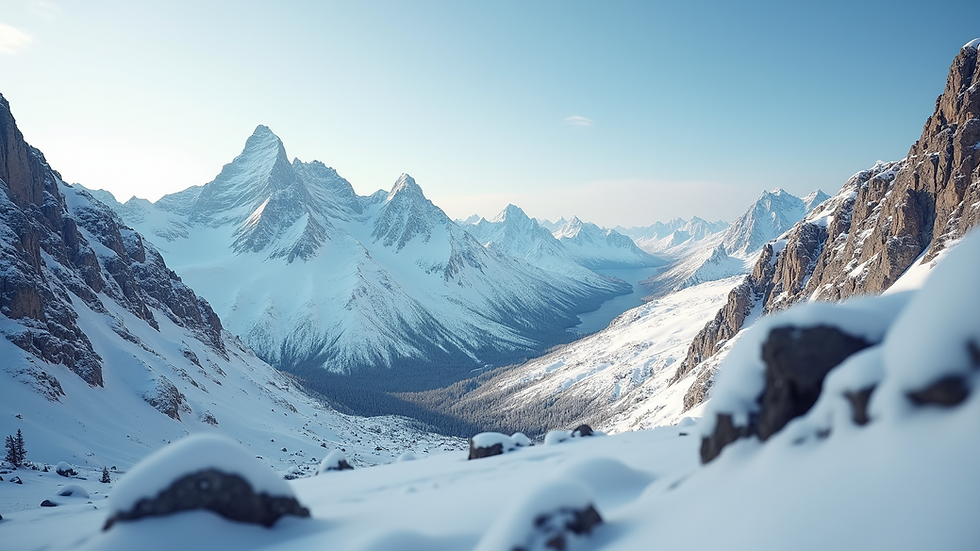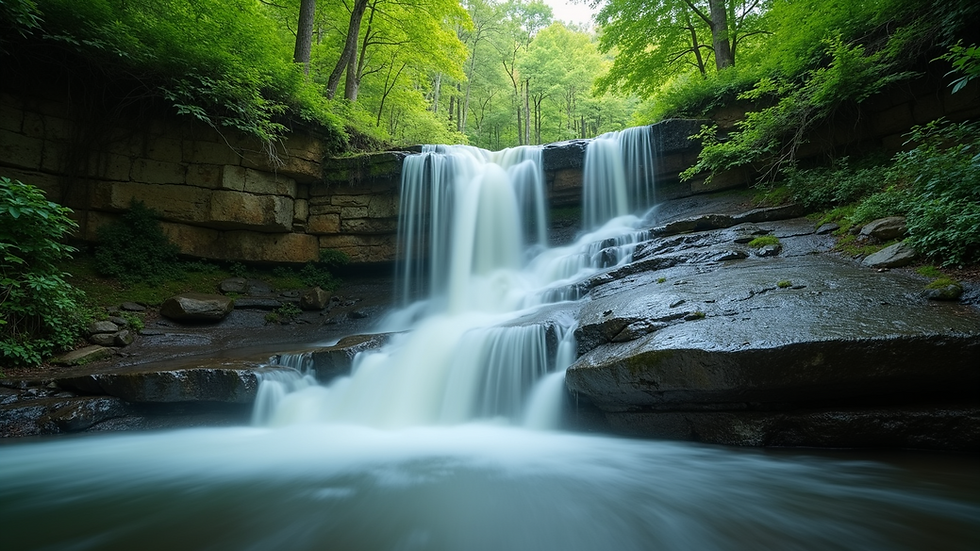The Intriguing Genesis of World Adventure: Unraveling Its Unseen Threads
- agale14
- Jun 24
- 5 min read
World adventure is a captivating aspect of human existence that transcends generations and cultures. It reflects humanity's strong desire to explore, discover, and experience the unknown. This passion for adventure has evolved over time, shaped by history, geography, and the very essence of curiosity. In this blog post, we uncover the unseen threads that form the world adventure landscape, revealing the influences shaping it today.
The Historical Context of Adventure
Adventure has been a constant throughout human history. From early explorers to today's thrill-seekers, the urge to venture beyond familiar horizons has always been present. Ancient civilizations embarked on journeys for trade, conquest, and religious explorations. For instance, the Silk Road, stretching over 4,000 miles, was not merely a trade route; it was a pathway for cultural exchange, showcasing human ambition.
As societies advanced, the meaning of adventure transformed. The Age of Exploration, spanning the 15th to 17th centuries, marked a significant chapter. Figures like Christopher Columbus and Ferdinand Magellan pushed the boundaries of the known world, driven by curiosity and the pursuit of riches. This era created global interest in exploration, leading to various discoveries of new lands and cultures.
The Renaissance further fueled this adventurous spirit, igniting interest in geography, science, and the arts. This drive for exploration became closely tied to the quest for knowledge, enhancing humanity's understanding of the planet.
The Influence of Geography
The geographical diversity of our planet plays a crucial role in shaping adventures. Different landscapes—mountains, deserts, oceans, and jungles—offer unique challenges and experiences that draw adventurers worldwide.
Mountains: Peaks of Challenge and Inspiration
Mountains symbolize both physical and metaphorical challenges. From the Himalayas to the heights of the Andes, these natural giants call to adventurers. Climbing Mount Everest, for instance, has become a rite of passage for many and represents human determination in the face of nature’s toughest challenges.

The challenges found in mountainous terrains also foster unity among climbers. Many support one another during their ascent, forging strong social bonds that adventure brings about.
Oceans: Infinite Depths and Discoveries
Oceans have long driven adventure. Their vastness and mysteries allure explorers from ancient mariners to modern divers. The rise of scuba diving and marine tourism has created exciting opportunities for adventure seekers. In fact, over 6 million people participate in scuba diving annually, exploring vibrant coral reefs and sunken shipwrecks.
This appreciation for marine environments has led to increased conservation efforts, showing that adventure can align with protecting precious ecosystems.
Evolution of Adventure Tourism
Adventure has shifted from mere exploration into a defined sector known as adventure tourism. This change began in the late 20th century when travelers sought more than typical vacation experiences. It sparked interest in activities like white-water rafting, rock climbing, and trekking, appealing to those craving thrills and challenges.
Adventure vs. Traditional Tourism
Adventure tourism contrasts sharply with traditional tourism. While traditional tourism often focuses on relaxation and sightseeing, adventure tourism emphasizes active engagement and personal challenges. This experiential aspect allows individuals to interact with their environments meaningfully.
With growing interest in adventure tourism, specialized agencies began to emerge, offering tailored experiences for diverse interests and skill levels. This accessibility has democratized adventure, enabling more people to engage in thrilling activities that test their limits.
The Role of Technology
Technology has significantly shaped the landscape of adventure. Innovations in outdoor gear, GPS navigation, and communication devices have made exploration safer and more accessible. Social media platforms have fostered a community eager to share and inspire others' adventures, turning personal journeys into global narratives.
Cultivating a Culture of Adventure
Societal attitudes toward adventure have also evolved. As cultures embrace outdoor activities, a global community of adventurers is flourishing.
Inspiring Generations
Today's adventurers strive to inspire others to step beyond their comfort zones. Programs teaching outdoor skills, environmental stewardship, and teamwork have become more common. Initiatives like Outward Bound aim to empower young individuals through experiences that emphasize the importance of exploration as a catalyst for personal growth.
The rise in hiking national parks and participating in outdoor workshops reflects a cultural shift toward valuing experiences over possessions. This appreciation for nature not only encourages exploration but also underscores the need for responsible stewardship of the great outdoors.
The Impact of Global Challenges
Modern adventurers face a world full of opportunities and challenges. Global issues like climate change, political instability, and pandemics directly affect how and where adventures unfold. These challenges inspire a more mindful approach to exploration.
Environmental Awareness
Growing recognition of environmental concerns has become integral to the adventure narrative. Many travelers now prioritize sustainable practices, recognizing their impact on the environment. This movement often aligns adventure with conservation efforts, blending thrilling experiences with meaningful actions to preserve cherished landscapes.
The Shift in Adventure Preferences
Moreover, recent global events have shifted many people's preferences toward local adventures. With travel restrictions, individuals have begun to explore their backyards, discovering hidden gems nearby. This trend not only boosts local economies but promotes a deeper connection with regional landscapes.
Future Directions in World Adventure
Looking ahead, the future of world adventure will likely be shaped by technological advancements and changing cultural values. We can expect the emergence of new forms of adventure that prioritize sustainability, inclusivity, and well-being.
Virtual Reality Adventures
Virtual reality (VR) promises to revolutionize adventure experiences. It allows individuals to explore previously unreachable destinations and participate in thrilling activities without setting foot outside. While this appears to deviate from traditional adventures, it can inspire a new generation to seek physical experiences triggered by their virtual explorations.
Inclusivity in Adventure
As adventure gains popularity, the emphasis on inclusivity grows. Ensuring outdoor activities are accessible to individuals of all abilities is essential for enriching the adventure community. By addressing this, we can foster diverse participation in adventure tourism, enhancing the overall culture.
A Final Thought on Adventure
The origins of world adventure are steeped in a rich narrative shaped by history, geography, and the human spirit. From ancient exploratory pursuits to today’s adventure tourism, our thirst for exploration remains strong.
As we move forward, it becomes vital to embrace responsible exploration, nurture inclusivity, and champion sustainability within the adventure sector. With a deep understanding of our past and a commitment to a better future, the threads of world adventure will continue to inspire generations to come.
Adventure is more than an experience; it connects us to the world around us, enriches our lives, and leads us to discover our true selves. Whether scaling mountain peaks or diving into ocean depths, the call of adventure will resonate in our hearts for years to come.

Every step we take into the unknown shapes the continuing story born from a simple desire to explore. Let the world be our playground for hearts, minds, and souls as we continue to unravel the unseen threads of adventure that connect us all.







Comments